by Rabbi Yair Hoffman for Five Towns Jewish Home
Many people first move into new homes in mid-August to better prepare for new school years and new jobs. In the rush of it all, we may, at times, neglect properly reflecting upon the imact of the Mezuzos that we are affixing.
There is significant Divine reward we receive when we observe the Mitzvah of Mezuzah, the Mitzvah has tangible benefits in this world too[1].
When Moshe Rabbeinu attempted to convince his father-in-law, Yisro, to remain with the nation of Israel he said to him (BaMidbar 10:32), “If you remain with us, it shall be that the good which Hashem will do for us will be extended to you.” The words “vehaya hatov hahu – it shall be that the good” are equivalent to the gematriah of Mezuzah. What is that good?
The Talmud (Menachos 43b) states the proper observance of this Mitzvah in combination with the proper observance of Tefillin and Tzitzis will assure that the person not come to sin.
The Mitzvah of Mezuzah also has a protective quality to it[2]. When a person places the Mezuzah upon his doorway, Hashem guards him from damaging spiritual forces known as mazikin[3]as well as from other dangers. The Talmud (Menachos 33b) states:
Rabbi Chaninah said: Come and see how the qualities of the Holy One blessed be He are different from that of flesh and blood. It is the nature of human beings to have the master sit in the house while the servants stand guard outside. Not so is the nature of the Holy One Blessed be He! His servants sit inside while He stands guard outside..
Even though Hashem dislikes a wayward city, an ir hanidachas, and included a chapter in the Torah (Dvarim 13:13) telling us how to “lay it waste and everything that is in it”, it is the Mezuzah that ensured that there never was a city in Israel’s history that was destroyed on account of its evil[4].
One who purposefully lives in a home (such as a tent)[5] where he is fully exempt from observing the Mitzvah of Mezuzah will not be saved during a period of Divine Wrath (BeIdna DeRischa)[6].
We see from here that the Mezuzah has the ability to placate Divine Wrath. The 713 letters in the Mezuzah allude to the words that Moshe Rabbeinu used to avert the destruction of the Jewish people in his supplication before Hashem (Shmos 32:12) “Return from Your Divine Wrath – Shuv MeCharon Apecha.” These three words are equivalent in Gematriah to the number of Hebrew letters in a Mezuzah – 713.
The reward for observing this Mitzvah is also very great. If one is careful in the performance of this Mitzvah, he and his descendants will merit long life. The converse, however, is also true[7].
And there are other physical rewards as well. The Talmud (Shabbos 23b) tells us that one who is careful in the Mitzvah of Mezuzah merits a beautiful home[8]. This can be attested to by the experience of many people.
The Baal HaTurim explains that the Torah juxtaposed the Shma section in the Torah to the section of “And it shall be when Hashem shall bring you to the land..” (Dvarim 6:10) to teach us that it is in the merit of observing the Mitzvos of a Sefer Torah, Tefillin, and Mezuzah that we will inherit the land without effort.
It was also the Mezuzah and Unkulus’ meticulous observance of this Mitzvah that was paramount in the incident of the conversion of the Roman Caesar’s men recounted in the Talmud (Avodah Zarah 11b).
Unkulus the son of Klonimus converted to Judaism. The Caesar, his uncle, sent a legion of Roman soldiers to retrieve him. Unkulus enticed the soldiers to Judaism by quoting verses, and they converted to Judaism. The Caesar sent a new legion but this time he instructed them not to enter into conversation with his nephew. As they dragged him from his home, Unkulus saw the Mezuzah affixed to his doorpost. He longingly placed his hand upon it and asked them, “Do you know what this is?” The soldiers could not contain their curiosity and answered, “You tell us.”
Apparently moved by what they observed, they asked him about it, thus ignoring their Caesar’s instructions. Unkulus explained the unique nature of this Mitzvah that we have seen before:
It is the nature of human beings to have the master sit in the house while the servants stand guard outside. Not so is the nature of the Holy One Blessed be He! His servants sit inside while He stands guard outside. As it states (Tehillim 21:8), “Hashem Shall guard your departure and arrival, from now and forever more.”
They, too, converted, and the Caesar did not pursue the matter further.
We see from the protection the Mezuzah offers from sin, from damaging spiritual forces, and from other dangers, the long life for us and for our children, the reward of beautiful home, and the land of Israel itself, the incredible impact of this fundamental Mitzvah. We also observe the powerful effect, both upon ourselves and upon others, if one observes this Mitzvah meticulously. It is a Mitzvah that requires a small investment at the beginning, but lasts for a long time. It behooves us to appreciate its significance.
[1] See Bach’s explanation of the Tur chapter 285
[2] As mentioned earlier, one should observe the Mitzvah because it is what our Creator commanded and not for the protective quality of it. Aruch HaShulchan 285:3. In fact, the Kesef Mishna indicates that the protection only comes with the observance of the Mitzvah.
[3] See Tur and TaZ 286:9 who quote the Maharam MiRothenberg who states that before he affixed a Mezuzah between the Bais Midrash and his home, a ruach rah would disturb him while he was taking his afternoon nap.
See also MeShiurei HaRishon LeTzion IV §169 that when there is a kosher Mezuzah on the doorpost the home is guarded by sixty angels and the Name of Hashem barring the entry of any damaging spiritual force. See also Yabia Omer 8 YD §30 who cites a proof to this from the Jerusalem Talmud.
The Tur (285) describes the protective quality as greater than the fact that the Mezuzah extends life perhaps because the protection quality is an open miracle, while the longer life is a hidden miracle (Bais Yoseph). Alternatively, the wondrous aspect of a king watching his servants is why it is described as greater (Bais Yoseph and Bach).
[4] Sanhedrin 71a; 113a; Yalkut Shimoni Parshas Re’eh §888. The reason that it is not destroyed is because the verse says to destroy everything in it (Dvarim 13:16) and a Mezuzah cannot be destroyed since the verse earlier (Dvarim 12:31) states, “Do not do so to Hashem your G-D.” Therefore the command to destroy the entire city cannot be fulfilled. The city can thus never be designated as a “wayward city.” This is Rabbi Eliezer’s position. According to Rabbi Yonasan, however, there was such a city and apparently, they destroyed everything in it but the Mezuzah.
[5] Or if he purposefully constructed his doorways in a manner that they would be exempt from Mezuzah.
[6] Introduction to Sefer Chareidim; Shla in Chulin based upon Shabbos 32b cited in Saichel Tov p. 55. Rabbi Chaim Kanievsky in Kuntrus Mezuzos Baisecha 285:1cites an authority who states that someone who does this is also subject to the Gemorah in Shabbos 32b.
[7] Shulchan Aruch 285:1; Tur; Sifrei Aikev Piskah 46; See also Shabbos 32b regarding the sin of being neglectful in this Mitzvah.
[8] The TaZ explains that the “carefulness” lies in reminding oneself of Hashem when seeing the Mezuzah.
The author can be reached at [email protected]

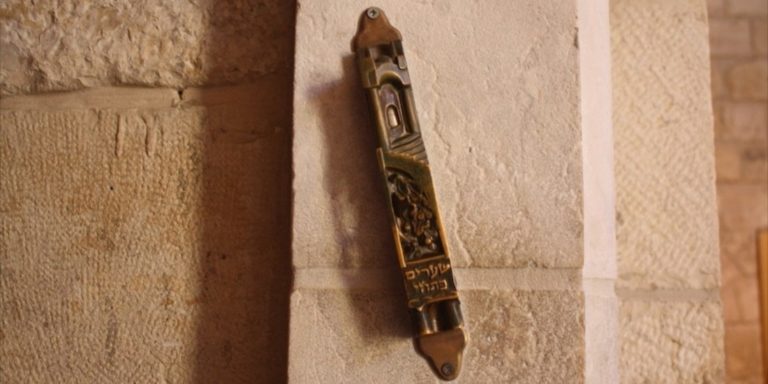




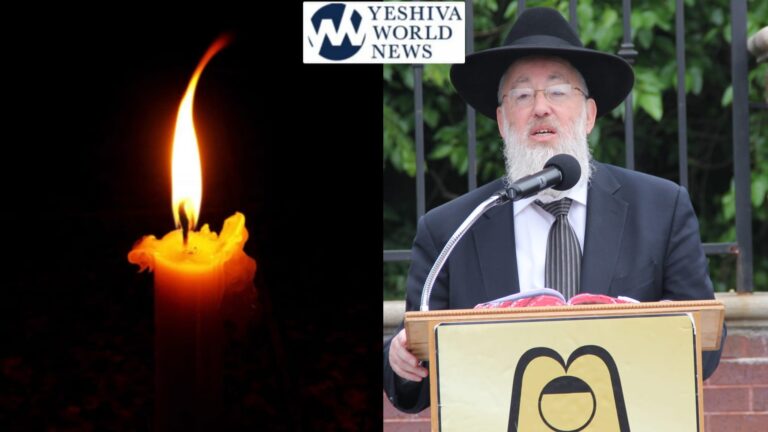

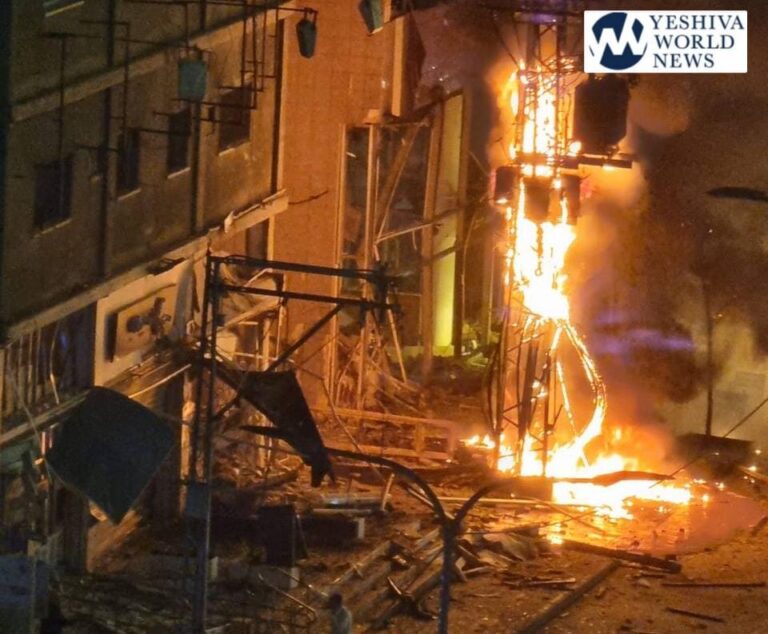
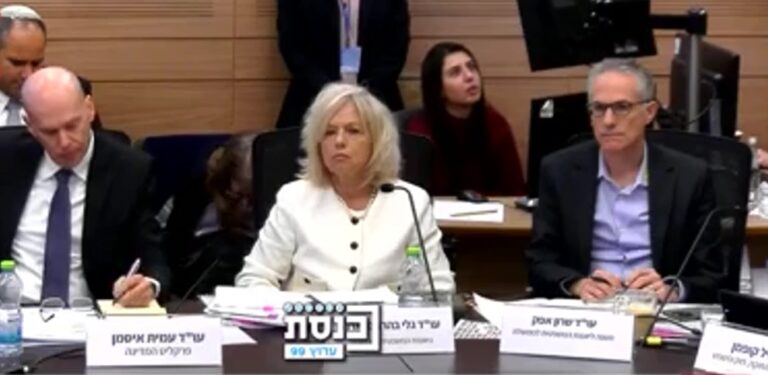
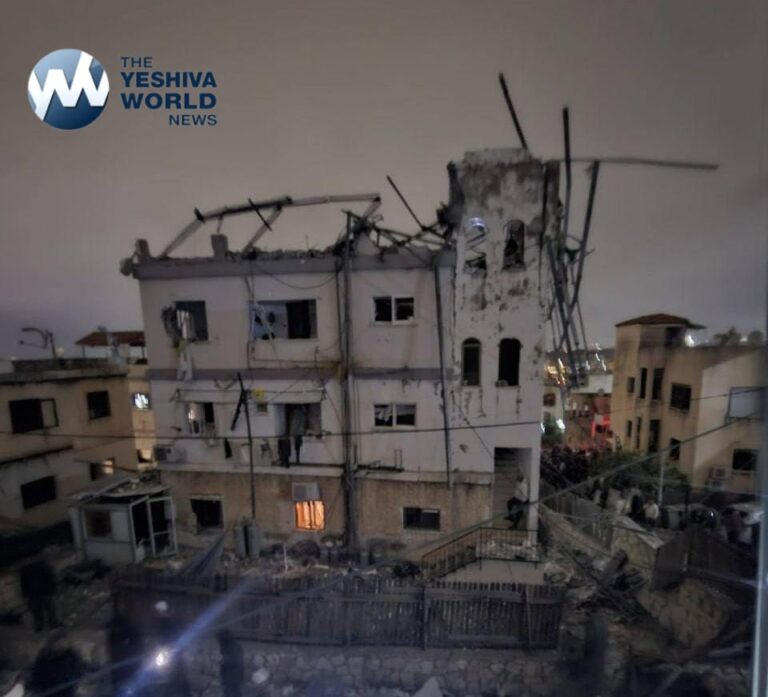

One Response
Yasher Kochachem.
By making our homes a Mikdash Meiat we hope to be Zoche to the Bais HaMikdash HaShlishi YVBV”A:
https://ourspecial mitzvah,org